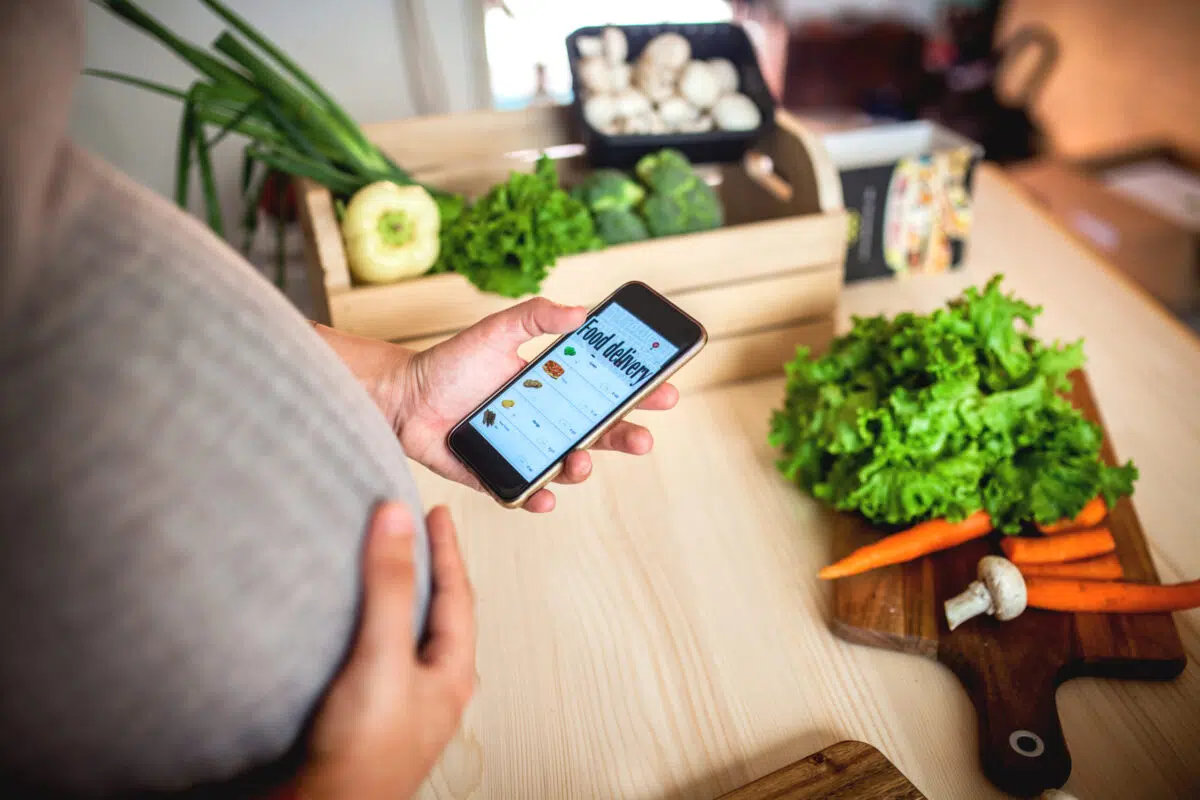Everyone’s heard of superfoods, or food that’s nutritionally dense and therefore (super!) good for your health.
But when it comes to pregnancy, are there specific foods and drinks women can reach for to stay as healthy as possible?
WellTuned spoke with Melissa Perry, registered dietitian-nutritionist for BlueCross BlueShield of Tennessee, to find out.
7 pregnancy superfoods
1. Dark leafy greens
Perry: All dark leafy greens are good: kale, spinach, greens (turnip, collard, mustard).
Greens are a good source of:
- Iron, which prevents anemia and helps your body produce oxygen
- Calcium, which is crucial during pregnancy to keep your bones strong and healthy
- Folic acid, a B vitamin that helps with healthy cell growth and DNA creation
As with all produce, make sure you wash it to remove bacteria. Pregnant women are more susceptible to food poisoning, which can lead to an increased risk of premature delivery, serious infection or stillbirth.
Pregnancy food guide: What you should and shouldn’t eat
Tip: If you’re looking for ways to boost your folic-acid intake even more, buy foods with whole grains or fortified foods, which have nutrients that don’t naturally occur in them added. Many cereals, for example, are fortified with vitamins and minerals including folic acid.
2. Eggs
Perry: Eggs are full of protein, as well as other nutrients pregnant women need, including:
- Omega-3 fatty acids, or DHA, which plays a role in baby’s brain and eye development
- Vitamin D, which is rare to find in foods but plays a key role in boosting your immune system and building baby’s bones and teeth
- Choline, a nutrient that’s key to fetal brain development
Choline and DHA aren’t always included in prenatal vitamins, but they are both very important, so look for a vitamin that contains both.
When it comes to eating eggs, purchase pasteurized eggs, cook them until firm and avoid foods and drinks that may contain raw eggs, such as meringue, raw batter, tiramisu and homemade salad dressings or mayonnaise.
Find the full list of foods that may contain raw eggs
3. Salmon
Perry: Salmon is rich in calcium, vitamin D and DHA, so it has anti-inflammatory properties for mom and helps with brain development for baby. Buy it fresh or canned — both versions will give you a nutritional boost.
Salmon is also low in mercury, which is a concern for moms-to-be. Mercury is found in fish to sometimes-unhealthy degrees. While our bodies typically process mercury out over time, high levels can harm an unborn baby’s developing brain and nervous system. If you’re going to eat salmon or other fish every week, limit it to 2-3 servings. Or, if you know there’s a time you’ll be eating more fish — such as a trip to the beach — skip fish the week before and after to account for that.
Finally, if you’re an expectant mom who’s on a plant-based diet, ask your doctor about algae supplements. Most fish get their omega-3s by eating algae, so it’s a great option for women who choose not to eat fish or take fish oil.
4. Citrus
Perry: Citrus fruit — lemons, limes, oranges, grapefruit — are great for pregnant women. They’re full of antioxidants and vitamin C, which helps with everything from tissue repair and wound healing to immunity.
Plus, if you add citrus (or any food with vitamin C) to a meal, you’ll increase your absorption of iron, which is especially important for expectant moms on a plant-based diet but can help everyone guard against anemia. Just throw some mandarin oranges on your salad or squeeze a lime over tacos! You can also cook your food in an iron skillet, which leaches a little iron into your food in a good way.
Guide to nutrient absorption: What you eat vs. what your body absorbs
5. Green tea, ginger & fruit
Perry: Hydration is key for pregnant women. Your blood volume increases during pregnancy, and you have to stay hydrated in order to sustain that increase.
If you’re an expectant mom who doesn’t like plain water, try adding a squeeze of citrus to it or drinking green tea instead. Green tea is full of antioxidants, and if you add a little ginger, you can get some extra help with nausea. Just be sure to stay under 200 mg of caffeine per day if you choose a caffeinated version.
You can also help your hydration efforts by eating fruits with high water content such as melons, strawberries, peaches, oranges and grapes (which are especially delicious as a frozen treat).
6. Legumes
Perry: Legumes are rich in all kinds of vitamins and minerals, such as iron and folic acid, as well as fiber, which can help with constipation during pregnancy. They’re also an easy, affordable protein source that really has no limit as far as how much you can eat.
Stock up on:
- Beans
- Peas
- Lentils
- Edamame
- Chickpeas
7. Cottage cheese & tofu
Perry: While low-mercury fish and leafy greens are great sources of calcium, dairy is the most concentrated way to add it to your diet. A lot of dairy is also fortified with vitamin D, which is ideal for expectant moms.
Cottage cheese is one food that’s really high in calcium, which is great for moms because calcium is often leached from their bones by the baby to build theirbones and teeth. If you don’t eat dairy, look for calcium-enriched tofu.






Comments